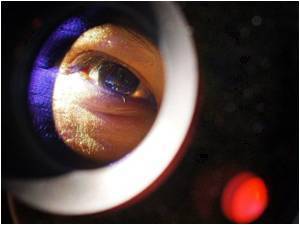The research report establishes that drugs targeting immune pathways to prevent retinal tissue loss in age-related macular degeneration are ineffective as monotherapies.
Highlights:
- AMD leads to vision loss in people above 50 as it damages the macula, a small spot near the center of the retina
- The wet form of AMD with leaky blood vessels can be treated with vascular endothelial growth factor (VEGF)
- Several drug companies have been developing and testing complement inhibitors which have so far been proven ineffective.
Age-related macular degeneration beyond single treatment mode
Geographic atrophy (GA) is a common complication of the dry form of AMD. While the wet form of AMD with leaky blood vessels can be treated with vascular endothelial growth factor (VEGF), the dry form with its complications continues to puzzle drug developers. Targeting the immune complement pathway was believed to reduce retinal tissue loss in AMD, however this idea was disrupted when Roche of Basel, Switzerland announced that lampalizumbab (an experimental antibody drug) performed no better than a placebo at slowing down the effects of tissue atrophy in a 936-person phase 3 clinical trial. Similarly other complement inhibitors like Soliris (eculizumbab) from Alexion pharmaceuticals and tesidolumab from Novartis have failed as monotherapies for AMD. Drug companies in ophthalmology are still on the lookout for suitable, successful drugs. In October 2017, a startup called Gemini therapeutics in Cambridge, Massachusetts came out with an investigational complement inhibitor for GA. In August, Apellis pharmaceuticals of Kentucky revealed that its investigational complement inhibitor APL-2 was significantly successful in slowing down GA progression in a clinical phase 2 study with 246 patients. Benjamin Kim, ophthalmologist at the Perelman School of Medicine, University of Pennsylvania maintains that the positive results of these studies need to be seen in bigger trials with more data.GA in the dry form of AMD has had many interventions so far. Clinicians have tried neuroprotective agents, antioxidants, immunosuppressants, visual cycle inhibitors and even antibodies to target amyloid-β which is a component of drusen (fatty deposit on the retina in patients with the dry form). According to Wai Wong, a clinician-scientist at the US National Eye Institute in Bethesda; the challenge in GA in the dry form is the lack of animal models for clinical studies. Because of this, drug discovery has not been as robust as with animal models. There are gray areas regarding complement inhibitors, best dose and best delivery mode.
Another serious issue could be related to clinical trial design where most studies using complement inhibitors have enrolled patients with progressing GA. At this point, it may be too late to make any intervention. Jayakrishna Ambati, AMD specialist at the University of Virginia School of Medicine says that drug development should not be based on the false lead of just statistical genetics. Rather drugs should be developed after observing mechanistic pathways in retinal degeneration.
Timothy Jackson, ophthalmic surgeon at King’s College, London observed that AMD is a multifactorial disease and this means we need robust multifactorial approaches. Multifactorial approaches could be a regimen of diverse drugs along with stem cell therapy or embryonic stem cells transformed into RPE (retinal pigment epithelium) cells. Researchers hope to use stem cell therapies to regenerate loss of rods, cones and RPE. Currently, the only therapeutic which seems viable is simply preserving existing function.
What is Age-related macular degeneration (AMD)?
AMD is a fairly common eye condition in people above 50. It leads to loss of vision as it damages the macula, small spot near the center of the retina. AMD progresses slowly so the initial symptoms may be missed. AMD begins with a blurred area in the central vision and this blurriness increases with time. While AMD does not lead to total blindness, the loss of central vision can affect daily activities like reading, driving, cooking or managing the house.References:
- Dolgin, E. (2017). “Age-related macular degeneration foils drugmakers”, Nature Biotechnology 35, pp.1000-1001. DOI: doi:10.1038/nbt1117-1000
- Facts About Age-Related Macular Degeneration - (https://nei.nih.gov/health/maculardegen/armd_facts)
Source-Medindia










